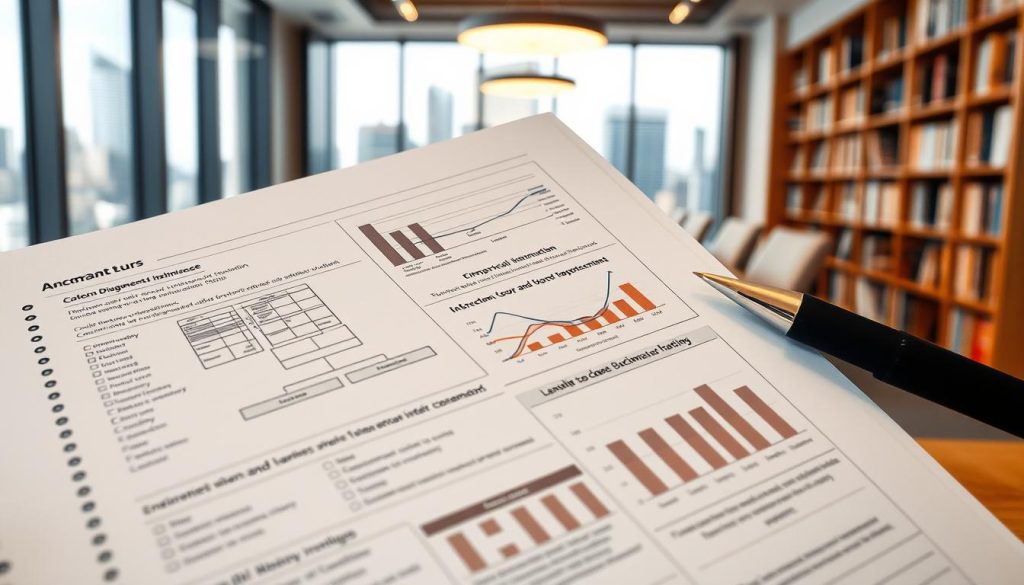CBS (Certified Bankruptcy Specialist) Test: Your Guide
The world of bankruptcy and insolvency is changing fast. More than ever, there’s a need for experts in this field. The CBS (Certified Bankruptcy Specialist) test checks if you know your stuff about bankruptcy law and procedures. It also looks at your skills in dealing with creditors and restructuring debt.
This guide will help you understand the CBS credential and why it matters. You’ll learn how to get ready for and do well on the test.

Key Takeaways
- The CBS (Certified Bankruptcy Specialist) credential shows you’re good at bankruptcy law and procedures.
- It’s a key certification for those in bankruptcy and insolvency.
- Passing the CBS exam can boost your career and make you more respected in your field.
- Knowing the exam rules and studying hard are key to doing well.
- Being an expert in Chapter 7 and Chapter 11 is crucial for passing.
Understanding the CBS (Certified Bankruptcy Specialist) Test
The CBS (Certified Bankruptcy Specialist) credential is key for those in bankruptcy law, financial restructuring, and insolvency proceedings. It shows deep knowledge in creditor rights and debtor obligations. It also proves expertise in chapter 7 bankruptcy and chapter 13 bankruptcy procedures.
Significance of the CBS Credential
The CBS credential is highly respected in the bankruptcy and financial services fields. It shows a professional’s commitment to excellence. It also shows they follow the highest standards of practice.
Getting this certification means you’re ready to handle complex bankruptcy law cases and insolvency proceedings. It tells clients, colleagues, and regulators you have the skills needed.
Eligibility Requirements and Prerequisites
To take the CBS exam, you need to meet certain educational and experience requirements. These rules keep the credential valuable and respected in the industry. Key requirements include:
- At least a bachelor’s degree in finance, law, or accounting
- 3-5 years of experience in bankruptcy law, financial restructuring, or insolvency proceedings
- Proven understanding of creditor rights and debtor obligations through work or education
These strict standards make the CBS certification a mark of trust. It shows you’re a reliable advisor in the complex world of bankruptcy law and financial restructuring.

Preparing for the CBS (Certified Bankruptcy Specialist) Test
Those aiming to become Certified Bankruptcy Specialists need to know a lot about bankruptcy law. They must dive deep into the Bankruptcy Code. This includes understanding Chapter 7 proceedings and Chapter 11 reorganization.
It’s key to grasp the different bankruptcy types, like Chapter 7 and Chapter 13. Knowing the bankruptcy exemptions is also important. They should also learn about the legal duties of debtors and creditors. Plus, the role of insolvency specialists in solving financial problems.

- Study the Bankruptcy Code and case law closely.
- Learn about the various bankruptcies, who can file, and exemptions.
- Get the legal duties of debtors and creditors down.
- Discover how insolvency specialists help with financial troubles.
- Do practice tests to improve problem-solving and test-taking.
With a detailed and thorough prep plan, candidates boost their chances of passing the CBS test. They’ll become key players in solving financial issues.
Navigating the CBS Exam Sections
The CBS (Certified Bankruptcy Specialist) exam tests a candidate’s deep understanding of bankruptcy laws in the U.S. It has two main parts: Bankruptcy Law and Procedures, and Creditor Rights and Debtor Obligations.
Bankruptcy Law and Procedures
The Bankruptcy Law and Procedures section covers the legal basics and court steps in bankruptcy cases. It includes knowledge of Chapter 7 and Chapter 13 bankruptcies. Candidates must show they know the bankruptcy court’s role, filing needs, and the steps in the process.
Creditor Rights and Debtor Obligations
The Creditor Rights and Debtor Obligations section looks at the rights and duties of creditors and debtors in bankruptcy. It covers the legal protections and limits for creditors and the options for debtors. It also focuses on managing debt and how bankruptcy affects credit reports.